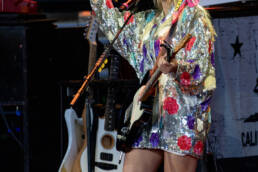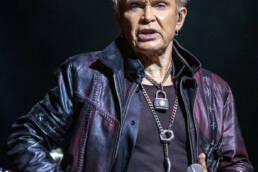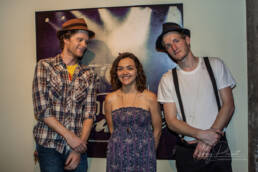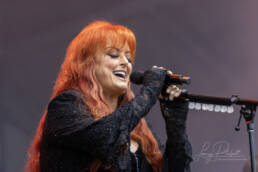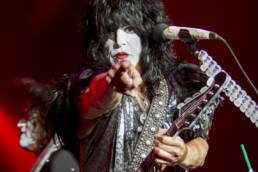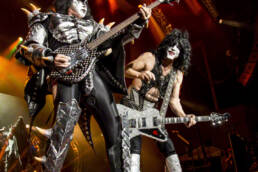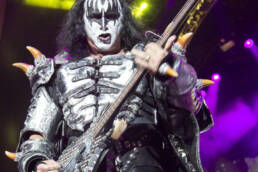LL Cool J: The Mic Master Who Built a Legacy
The Rhythm That Saved Him
In the rough-and-tumble streets of Queens, New York, a young James Todd Smith found his voice amid chaos. Born into a home scarred by violence—his father shot his mother and grandfather when he was just four—music became his shield, his way out. At 11, he got a pair of turntables and a dream, spitting rhymes in his bedroom while the crack epidemic raged outside. Inspired by the raw energy of Run-DMC and the swagger of Grandmaster Flash, he’s said, “I wanted to be heard, to turn pain into power.” That hunger—to rise above, to command the mic—birthed LL Cool J, a kid from the block who turned beats into a battle cry and changed hip-hop forever.
The Man Behind the Moniker
Born January 14, 1968, in Bay Shore, Long Island, James Todd Smith grew up in St. Albans, Queens, raised by his mom, Ondrea, and grandparents after his parents split. Life was tough—poverty, trauma—but he had grit. At 16, he sent a demo to a fledgling Def Jam Recordings, dubbing himself “Ladies Love Cool James” (LL Cool J for short). Rick Rubin and Russell Simmons heard gold, signing him as their first artist. By 1985, he’d dropped Radio, a debut that shook the rap world.
LL’s personal life’s been a steady climb. Married to Simone Smith since 1995, he’s raised four kids—Najee, Italia, Samaria, and Nina—weathering her 2004 breast cancer battle with unshakable devotion. Now 57, he’s a Queens-to-Hollywood king, splitting time between music, acting, and mentoring the next generation, his signature Kangol hat still tilted just right.
The Career That Redefined Rap
LL Cool J’s career is a solo sprint—no bands, just his name in bold. He kicked off with Def Jam, dropping Radio at 17, a stripped-down masterpiece of booming beats and brash rhymes. Albums like Bigger and Deffer (1987) and Mama Said Knock You Out (1990) made him a rap titan, blending street swagger with crossover charm. He’s never tied to a fixed crew, but producers like Marley Marl and DJ Pooh shaped his sound.
Collaborations? He’s rolled with Boyz II Men (“Hey Lover”), Jennifer Lopez (“All I Have”), and Brad Paisley (the genre-bending “Accidental Racist”). Romance? He’s kept it low-key, though a rumored fling with Foxy Brown in the ‘90s stirred whispers—unconfirmed. Onscreen, he’s a giant: Deep Blue Sea (1999), Any Given Sunday (1999), and NCIS: Los Angeles as Sam Hanna (2009-2023). He’s hosted the Grammys (2012-2016) and starred in Lip Sync Battle (2015-2019).
Awards? He’s got two Grammys—Best Rap Solo Performance for “Mama Said Knock You Out” (1991) and “Hey Lover” (1996)—plus a 2021 induction into the Rock and Roll Hall of Fame. His biggest hits?
- Mama Said Knock You Out (written by LL, Marley Marl) hit No. 17 on the Hot 100 in 1990, a comeback roar.
- I Need Love (LL, Bobby Erving, Darryl Pierce) reached No. 14 in 1987, rap’s first big ballad.
- Hey Lover (LL, Rod Temperton) peaked at No. 3 in 1995 with Boyz II Men, smooth as silk.
- Doin’ It (LL, Rashad Smith) climbed to No. 9 in 1996, a steamy classic.
Controversy’s tagged him. In 2013, “Accidental Racist” with Paisley—a clumsy race-relations duet—drew fire for its lyrics; LL stood by it, saying, “We meant dialogue, not answers.” A 1995 scuffle with a fan at a club landed him in cuffs (charges dropped), and his 2022 defense of Kanye West’s antics split fans—loyalty or misstep? LL’s battles are bold, like his rhymes.
The Legacy of a Rap God
LL Cool J’s tale is a street kid’s rise to royalty, his mic a scepter that shaped hip-hop’s golden age. With over 13 million albums sold, he’s bridged rap’s raw roots to its pop peaks, a pioneer who made ladies swoon and heads nod. At 57, he’s no relic—he’s a force, still spitting bars and stealing scenes. Catch him live, and you’ll feel that bedroom beat, now a thunderous legacy that echoes from Queens to the world.
